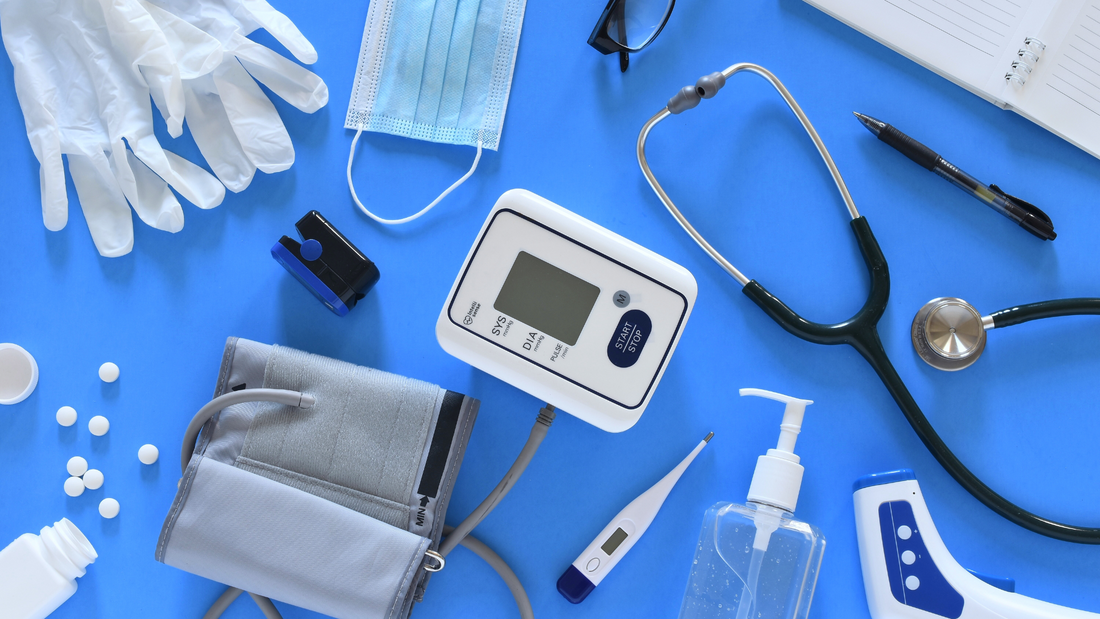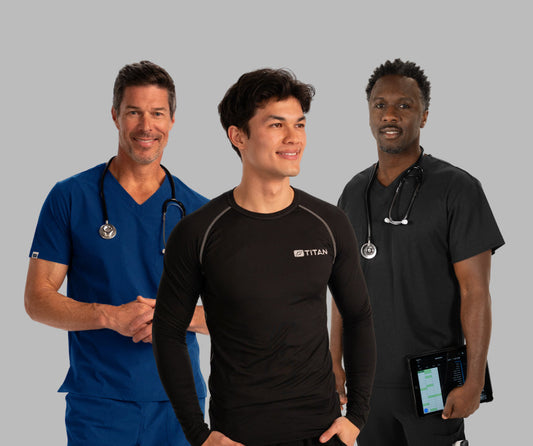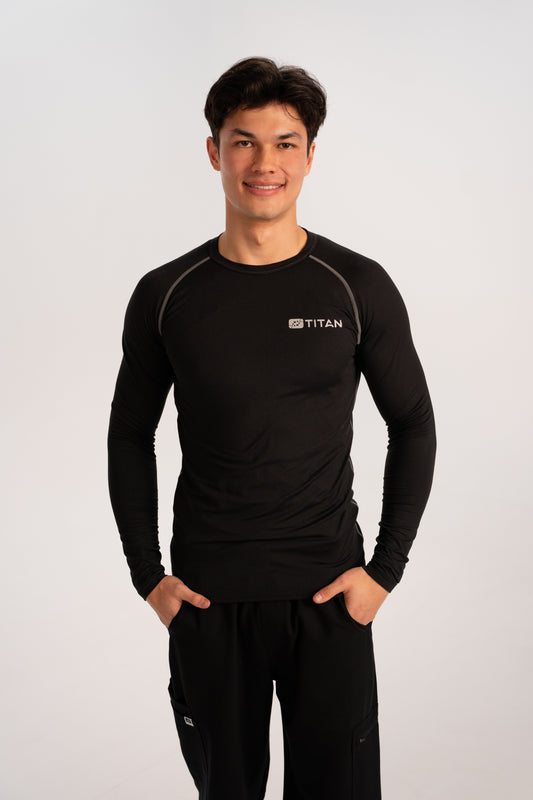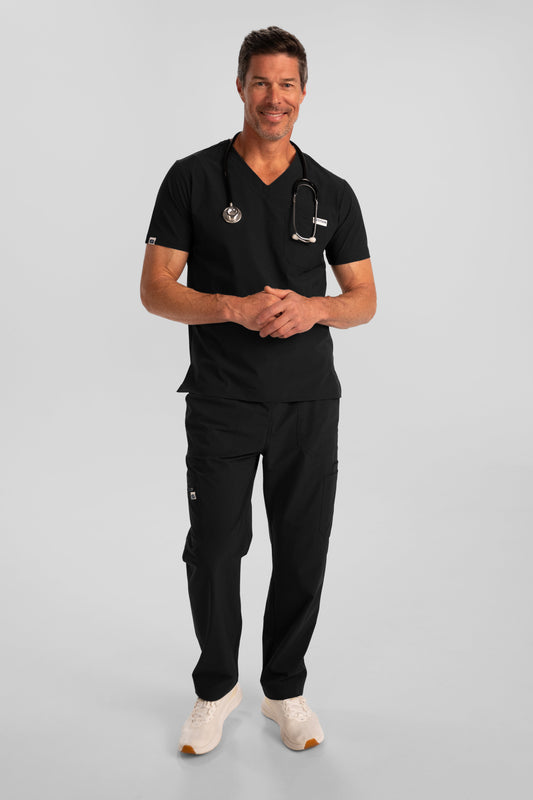In the fast-paced and demanding world of nursing, being prepared and equipped with the right tools can make all the difference in providing quality care. But with so many options available, it can be overwhelming to determine what nursing essentials are truly necessary. In this comprehensive checklist, we will delve into the must-have items that every nurse should consider having in their arsenal. From medical devices to comfortable footwear, personal protective equipment, and even mental health tools, we will cover it all. So, let's dive in and explore the world of nursing essentials!
Nursing Essentials for Work: The Importance of Being Prepared
Being prepared is essential for nurses to handle the unpredictable nature of their work. Having the right tools readily available can save precious time and ensure a smoother workflow. Whether you are a seasoned nurse or just starting out, having a well-stocked nursing bag is crucial. From stethoscopes to thermometers and syringes to bandages, it's vital to have these essentials on hand. Keep your bag organized with separate compartments for easy access, and regularly check and restock your supplies.
Additionally, apart from the physical tools and equipment, emotional preparedness is also key for nurses. Dealing with patients in various states of health, emotional distress, and pain can take a toll on a nurse's mental well-being. It's important to practice self-care techniques such as mindfulness, meditation, or seeking support from colleagues to ensure emotional resilience in the face of challenging situations.
Moreover, staying informed about the latest medical advancements and best practices in nursing is crucial for providing the highest quality care to patients. Attending workshops, seminars, and continuing education courses can help nurses stay up-to-date with the ever-evolving healthcare landscape. By continuously learning and improving their skills, nurses can enhance their confidence and competence in delivering exceptional patient care.
Must-Have Nursing Tools: Your Daily Checklist
When it comes to nursing essentials, there are a few tools that every nurse should have as part of their daily routine. These tools include:
- A reliable stethoscope for accurate assessments and listening to heart and lung sounds.
- A good-quality blood pressure monitor to ensure accurate readings and monitor patients' health.
- A penlight for examining the eyes, throat, and other areas for signs of infection or abnormalities.
- A pen and notebook for documenting important information and recording patient data.
- A watch with a second hand or a digital timer for accurate timing during procedures and medication administration.
Having these tools readily available ensures that you are equipped to provide efficient and effective care to your patients.
Additionally, it is crucial for nurses to have a reliable thermometer to monitor patients' temperatures and detect any signs of fever or hypothermia. Temperature monitoring is a fundamental aspect of patient assessment and can provide valuable insights into their overall health status.
Furthermore, having a pulse oximeter in your nursing toolkit is essential for measuring oxygen saturation levels in patients. This device is particularly useful in monitoring respiratory conditions and ensuring that patients are receiving adequate oxygen levels for optimal functioning of vital organs.
Nursing Essentials for Work: Top Medical Devices Every Nurse Should Carry
Medical devices play a vital role in diagnosing and monitoring patients. As a nurse, having access to these devices can significantly enhance your ability to provide quality care. Some essential medical devices that every nurse should consider carrying include:
- A pulse oximeter to monitor oxygen saturation levels and assess respiratory function.
- A portable EKG monitor for quickly identifying cardiac abnormalities.
- A handheld ultrasound device for assessing bladder volume, identifying fluid in the lungs, and more.
- A portable defibrillator for immediate response in case of cardiac emergencies.
These devices not only allow for quick and accurate assessments but also assist in making informed decisions regarding patient care.
Furthermore, having these medical devices readily available can be crucial in emergency situations where time is of the essence. For example, a pulse oximeter can quickly detect hypoxemia, allowing nurses to intervene promptly and prevent further complications. Similarly, a portable defibrillator can be a life-saving device in cases of sudden cardiac arrest, providing the necessary electric shock to restore normal heart rhythm.
Moreover, the use of a handheld ultrasound device by nurses has revolutionized point-of-care diagnostics, enabling them to visualize internal structures in real-time at the patient's bedside. This technology not only enhances the efficiency of patient assessment but also improves the accuracy of treatment decisions. With the rapid advancements in medical technology, equipping nurses with these essential medical devices is essential to delivering comprehensive and timely patient care.
Choosing the Best Nursing Shoes: Balancing Comfort, Breathability, and Style for Long Shifts
When it comes to choosing the best nursing shoes for those long shifts, there are a few key factors to consider beyond just comfort. Breathability is an important feature to look for in nursing shoes, as it can help keep your feet cool and dry throughout the day. Shoes with moisture-wicking properties or mesh panels can be a great option to prevent sweaty feet and potential discomfort.Another aspect to keep in mind is the weight of the shoes. While you want them to be supportive and durable, heavy shoes can add unnecessary strain to your legs and feet over time. Lightweight nursing shoes made from materials like EVA foam or breathable mesh can provide the necessary support without weighing you down during those long hours on your feet.
In addition to comfort and functionality, style is also something to consider when choosing nursing shoes. Many brands offer a variety of designs and colors to suit different preferences, allowing you to express your personal style while maintaining a professional look. Finding a balance between style and functionality can help boost your confidence and make those long shifts a little more enjoyable.
Nursing Essentials for Work: The Role of Personal Protective Equipment (PPE)
Personal Protective Equipment (PPE) is essential in safeguarding nurses and patients from infectious diseases and potential hazards. Some key PPE items include:
- N95 respirators to protect against airborne particles.
- Disposable gloves to prevent cross-contamination.
- Protective gowns to shield against bodily fluids and contaminants.
- Face shields and goggles to protect the eyes from splashes or sprays.
- Shoe covers to prevent the spread of germs through footwear.
By consistently utilizing the appropriate PPE, nurses can effectively manage the risk of infection and ensure their own safety as well as that of their patients.
Nursing Essentials for Work: The Importance of Hydration and Healthy Snacks
In the demanding world of nursing, it's easy to forget about self-care. However, staying hydrated and nourished is crucial to maintain your energy levels and focus. Always carry a refillable water bottle and make it a habit to drink water throughout your shift. Additionally, pack healthy snacks such as fruits, nuts, and protein bars to keep your energy levels up. Prioritizing your own well-being ensures that you can provide the best care possible to your patients.
Titan Scrubs: Supporting Nurses with High-Quality Scrubs and Care for Their Vital Role in Healthcare
In the world of nursing, the right scrubs can make a significant difference in comfort and functionality. At Titan Scrubs, we understand the unique needs of nurses and offer high-quality, durable scrubs that prioritize both style and functionality. Our scrubs are made from breathable and moisture-wicking fabric, ensuring all-day comfort. With a wide range of sizes and colors available, Titan Scrubs caters to the diverse needs of nurses, empowering them to perform their vital role in healthcare with confidence.
As a nurse, being equipped with the right nursing essentials is essential for delivering quality care. From medical devices to comfortable shoes, finding the perfect scrubs, personal protective equipment, and mental health tools, these essentials enhance your ability to provide exceptional care to your patients. So, take the time to compile your comprehensive checklist of nursing essentials, and be prepared to face any challenge that comes your way!
Stay Organized: The Best Bags and Totes as Nursing Essentials for Work
Keeping your nursing essentials organized is key to a seamless workflow. Invest in a durable and functional nursing bag or tote that has compartments and pockets for easy organization. Look for features like adjustable straps, waterproof material, and reinforced stitching for long-lasting use. With a well-organized bag, you can effortlessly locate your tools and supplies, saving time and reducing stress.
Nursing Essentials for Work: Mental Health Tools and Tips for Stress Management
Nursing can be a highly stressful profession, and taking care of your mental well-being is essential. Incorporating mental health tools and strategies into your daily routine can help alleviate stress and promote a healthier work-life balance. Some effective tools and tips include:
- Practice deep breathing exercises to reduce stress and promote relaxation.
- Engage in regular physical activity to improve mood and relieve tension.
- Take breaks and utilize relaxation techniques such as meditation or mindfulness.
- Seek support from colleagues or professional counseling services when needed.
By prioritizing your mental health, you can enhance your overall job satisfaction and provide better care to your patients.







